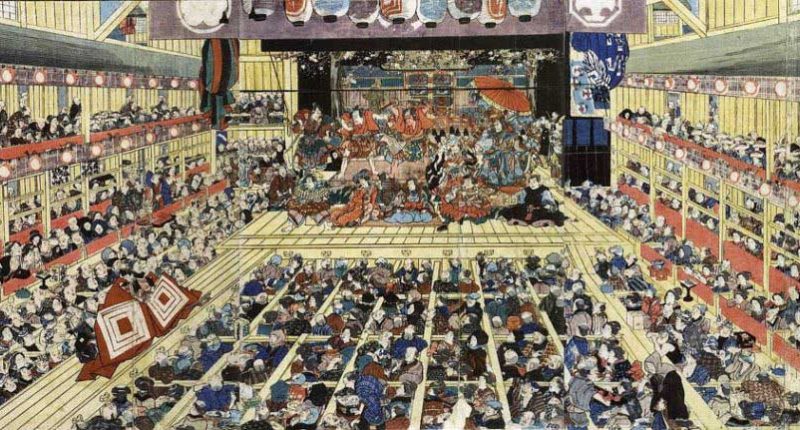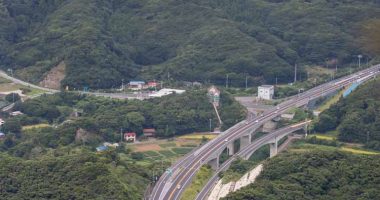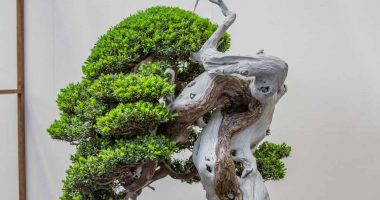Whereas Noh theatre developed as a pastime for the more cultivated members of society, Kabuki, with its deliberately over-the-top and operatic performances, was from the start very much aimed at the masses. The verb kabuku, which literally means “to be slanted”, was used to describe something deviating from the norm or “outlandish” and Kabuki is the nominalization of this verb.
In Kabuki’s early years the cast was entirely female, but the erotic nature of the performances (and the fact that some performers moonlighted as prostitutes) led to the shogunate banning women from the stage, and young boys were recruited to take their place (unbroken voices making it easy for them to impersonate the female role). However, the interest of the audience took on an altogether more homoerotic nature, and soon these young boys, too, were barred from performing. Mature males were thus forced into playing the roles, a tradition that remains to this day. Nevertheless, Kabuki’s connection with the more hedonistic elements of society remained and the theatres were often found in the pleasure quarters of the towns and cities. Indeed, the fact that Tokyo’s biggest red-light district is called Kabukicho (“Kabuki Town”) is no coincidence.
In the 17th and 18th century Kabuki evolved from dances and skits to more meaningful performances where the actors often regaled the audience with popular tales. One of Kabuki’s most famous plays (Kanadehon Chushingura) tells the story of the 47 Ronin, for instance.
How Can I Watch Kabuki Theatre?
Kabuki-za in Ginza is the capital’s most famous theatre house. Tickets for individual acts can be purchased for ¥1,000-2,000. See the website for details.




